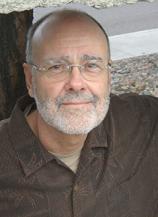Willnot
Review
Willnot
It doesn’t get any better than this. One can say that about quite a bit of James Sallis’ work, from the science fiction short stories that he wrote in the mid-1960s when I was just a wee lad (okay, maybe not so wee) right up to his mystery, suspense and crime caper novels of this century. Even his books are short by modern standards, usually clocking in at around 200 pages, and his output appears in fits and starts. But whatever he sacrifices in quantity is made up for in the quality of his work. So, as he closes in on a half-century of a writing career, Sallis gives us WILLNOT, which is arguably the best of his lot to date.
"...a beautiful, wonderful puzzle.... This 'child is the father to the man' theme is turned upside down and twisted just a bit in WILLNOT, and for me was worth the price of admission all by itself."
WILLNOT defies easy classification. The title is named after a rural town where the story is set, a place that seems drawn in part from WINESBURG, OHIO and “Our Town” but in the end is all Sallis. The narrator is Lamar Hale, the town physician who seems to be a surgeon, a family doctor and an occasional veterinarian. Hale and his fellow citizens are shaken when a mass grave is discovered on the outskirts of town, which gives the already overworked Hale more to do, though not for the reason you might think. That event is also marked by the sudden reappearance of Bobby Lowndes, a military veteran who figures prominently in Hale’s patient history. Something about Lowndes is off, particularly when an FBI agent and a journalist come to Willnot for different reasons but with a common interest in him.
Hale is brought into their investigation in spite of himself, but the book’s primary focus is more his day-to-day personal and professional life and the characters who figure prominently in that, as opposed to the classic mystery/thriller elements of murder and suspense. The latter pair of those are certainly present here, but they play second fiddle to Hale for the most of the book, at least until the near end, when tragedy comes to pass and possibly to stay.
WILLNOT is a beautiful, wonderful puzzle. It leaves several questions unanswered by the end, and is maybe the first of a two- or three-part series, or it could be complete in and of itself. It would seem to be a waste of a wonderful setting, and even better characters, but one could say that of everything Sallis has ever written. And let’s look at that aspect for just a moment. Hale discusses his father, a science fiction author, at some length but in short bursts. It will be clear to those who have been reading Sallis’ work across decades and genres that the anecdotal stories about Hale’s father are actually Sallis’ from his own time laboring in the science-fiction vein of the grammar mine.
This “child is the father to the man” theme is turned upside down and twisted just a bit in WILLNOT, and for me was worth the price of admission all by itself. You may have the same experience; you will, as I did, find other reasons to embrace this book, this author, as one of our best.
Reviewed by Joe Hartlaub on June 24, 2016





